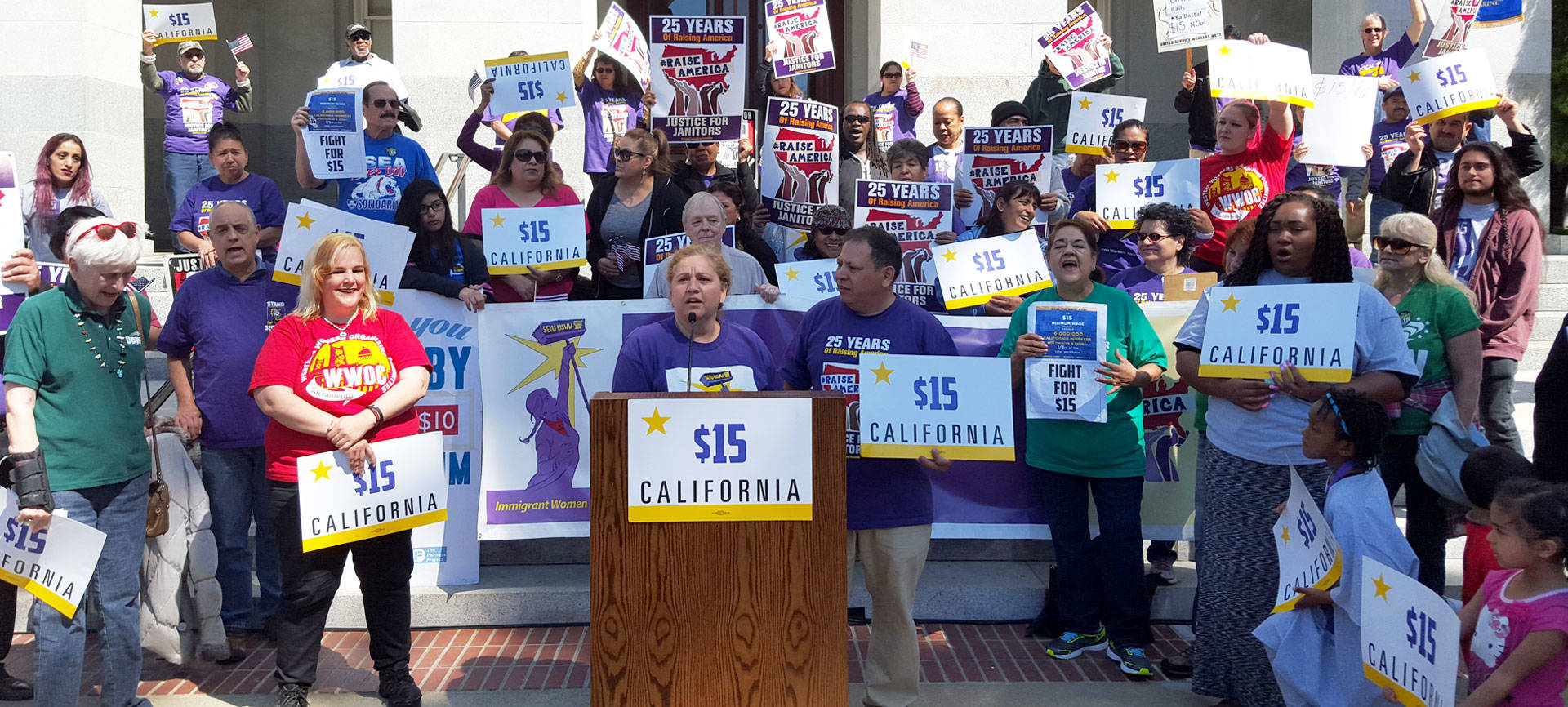Gov. Jerry Brown says he'll travel to Los Angeles next week to sign a bill that will gradually increase California's minimum wage to $15 per hour. The Legislature approved the measure today.
On Monday Brown announced he'd reached a deal with labor unions to increase the wage over over the next seven years. The fast timeline caused some lawmakers from both parties to question why the process was so rushed. But Democratic Assemblywoman Lorena Gonzalez says the conversation has been going on for much longer.
“For those who complain about process and hurry, I want to remind you if you haven’t been talking about the minimum wage in your district then you probably haven’t been talking," she says. "Because this fight for 15 has been going on at least for four years.”
Business groups have criticized the plan for not taking a regional approach to the minimum wage. Republican Assemblyman David Hadley agrees. He says what works on the coast may not work in the Central Valley.
“I think those members of this chamber who live in high-wage, affluent parts of coastal California who are prepared to throw an entire region of this state under the bus, under some misguided notion of social justice, are making a serious policy mistake," he says.

